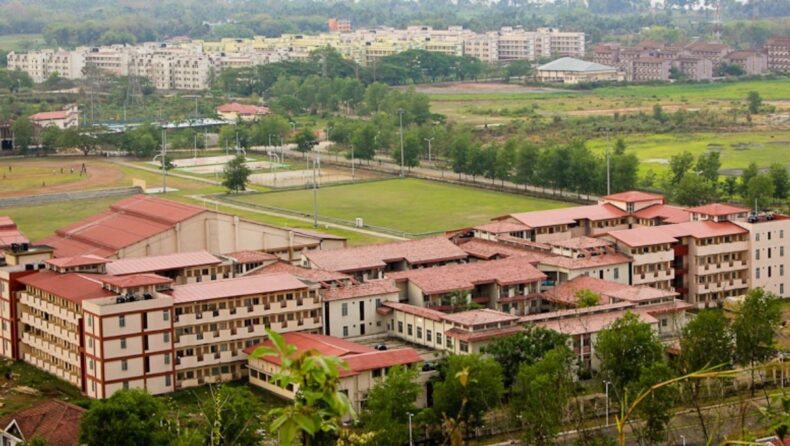IIT Guwahati, has established the “Chair of Jal Jeevan Mission” for Water Treatment Technology. The Jal Jeevan Mission (JJM) was launched by Prime Minister Narendra Modi on August 15, 2019 from the ramparts of the Red Fort.
It aims to enable every rural household to have a functional household tap connection (FHTC) by 2024. The institute has appointed Professor Mihir Kumar Purkait, Department of Chemical Engineering, IIT Guwahati, as the first occupant of this chair.
The tenure of the professor’s chair will be five years. Professor Mihir Kumar Purkait has a portfolio of diverse innovations and developments in basic and applied research.
He has credit for industrialising various technologies for upstream and downstream operation of water and wastewater treatment technologies, waste-to-wealth generation, separation of value-added products from a plant source, and electrochemical reduction of CO2 to various products.
The Jal Jeevan Mission-Professor Chairs are established by the Ministry of Jal Shakti, Department of Drinking Water and Sanitation, National Jal Jeevan Mission (NJJM), New Delhi, in reputed academic institutions to carry out high-quality empirical and applied research in the rural drinking water and sanitation sector.
The objective is to address sectoral challenges and facilitate the achievement of “Har Ghar Jal” and “ODF Plus” in rural India. It is intended to establish five Jal Jeevan Mission (JJM)-Professor Chairs in Institutions of Renown, such as Indian Institutes of Technology, Indian Institutes of Management, social sciences academic-cum-research institutions and national institutions having research experience relevant to the needs of the water and sanitation sector.
Highlighting IIT Guwahati’s track record on water-related research and its capabilities, Professor T. G. Sitharam, Director, IIT Guwahati, said, “The supply of contaminant-free drinking water to rural areas is a priority for the Central and all state governments, including Assam.”
The JJM-Professor Chair will work in coordination with the State Water and Sanitation, Rural Water Supply, PHE Departments, and the State and District Water and Sanitation Missions. It will focus on capacity building and maintain a balance between capacity building, outreach, academic programmes, and educational activities, and research-in-focus areas of the institute.
Explaining the scope of NJJM Professor Chairs on water treatment technology, Professor Mihir Kumar Purkait, Department of Chemical Engineering, IIT Guwahati, said, “The initiatives taken by NJJM will definitely bridge the gap between academic institutions like IIT Guwahati with the State Water and Sanitation, JJM, Rural Water Supply, PHED, PNRD, and the State and District Water and Sanitation Missions of the state and or central government.”
The Chair will also be responsible for conducting high-quality empirical and applied research in the rural drinking water sector that is aligned with the objectives and priorities of the Jal Jeevan Mission. The Chair will serve in an advisory capacity to NJJM on matters of policy or technology and will function as a think-tank in the selected focus area, in particular, and the rural water supply sector in general.
The Chair will also conduct a Ph.D. programme and related course work in the selected focus area. With the help of his patented innovative water treatment technologies, Professor Mihir Kumar Purkait has developed and demonstrated several prototypes to provide iron, arsenic, fluoride, and other contaminant-free drinking water to the rural people of Assam.
Arsenic and fluoride contamination in drinking water is a foremost and growing concern among rural people, not only in Assam but also in major parts of the country, and IIT Guwahati’s technology will succour and assist the government of India in providing contaminant-free drinking water to the people to fulfil the 6th Sustainable Development Goal (SDG-6).
Professor Mihir Kumar Purkait has developed various water treatment technologies based on membrane technology, nanotechnology, adsorption, electrocoagulation/coagulation followed by flocculation-sedimentation-filtration for the treatment of contaminated drinking water and industrial wastewater as well.
He has also developed and installed many water treatment plants in temples, schools, and rural villages where piped water supply is not available as a project deliverable funded by DST, DRDO, DBT, and the Government of Assam.
Published by – Kiruthiga K
Edited by – Kritika Kashyap













